
The region that is today the U.S. state of Colorado has been inhabited by Native Americans and their Paleoamerican ancestors for at least 13,500 years and possibly more than 37,000 years. The eastern edge of the Rocky Mountains was a major migration route that was important to the spread of early peoples throughout the Americas. The Lindenmeier site in Larimer County contains artifacts dating from approximately 8720 BCE.

Enugu is the capital city of Enugu State in Nigeria. The city had a population of 4,690,100 spread across the three LGAs of Enugu East, Enugu North and Enugu South, according to the 2022 Nigerian census.
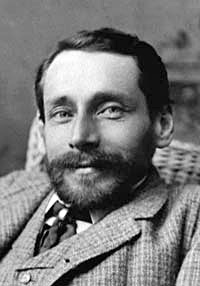
George Mercer Dawson was a Canadian geologist and surveyor. He performed many early explorations in western North America and compiled numerous records of the native peoples.

Virginia City is a census-designated place (CDP) that is the county seat of Storey County, Nevada, and the largest community in the county. The city is a part of the Reno–Sparks Metropolitan Statistical Area.

The Valley of Fear is the fourth and final Sherlock Holmes novel by British writer Arthur Conan Doyle. It is loosely based on the Molly Maguires and Pinkerton agent James McParland. The story was first published in the Strand Magazine between September 1914 and May 1915. The first book edition was copyrighted in 1914, and it was first published by George H. Doran Company in New York on 27 February 1915, and illustrated by Arthur I. Keller.

Enugu State verbally pronounced as "Enụgwụ" by the igbo indigenes is a state in the South-East geopolitical zone of Nigeria, bordered to the north by the states of Benue and Kogi, Ebonyi State to the east and southeast, Abia State to the south, and Anambra State to the west. The state takes its name from its capital and largest city, Enugu. The city acquired township status in 1917 and was called Enugwu-Ngwo. Due to the rapid expansion towards areas owned by other indigenous communities, it was renamed Enugu in 1928.

The Eastern Region was an administrative region in Nigeria, dating back originally from the division of the colony Southern Nigeria in 1954. Its first capital was Calabar. The capital was later moved to Enugu and the second capital was Umuahia. The region was officially divided in 1967 into three new states, the East-Central State, Rivers State and South-Eastern State. East-Central State had its capital at Enugu, which is now part of Enugu State.
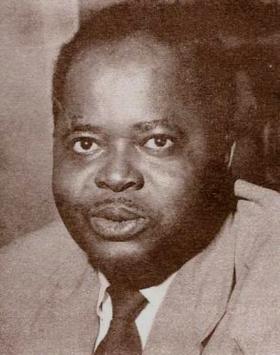
Michael Iheonukara Okpara was a Nigerian politician and Premier of Eastern Nigeria during the First Republic, from 1959 to 1966. At 39, he was the nation's youngest premier. He was a strong advocate of what he called "pragmatic socialism" and believed that agricultural reform was crucial to the ultimate success of Nigeria.

Chimaroke Nnamani is a Nigerian medical doctor and politician from Enugu State. He was elected Governor of Enugu State in the 1999 Enugu State gubernatorial election from 1999 to 2007. He subsequently served as a Peoples Democratic Party (PDP) Senator for Enugu East Senatorial District from 2007 to 2011 and was re-elected in 2019.
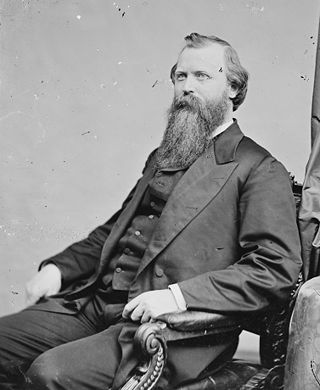
William Morris Stewart was an American lawyer and politician. In 1964, he was inducted into the Hall of Great Westerners of the National Cowboy & Western Heritage Museum.

Florence Nwanzuruahu Nkiru Nwapa, was a Nigerian author who has been called the mother of modern African Literature. She was the forerunner to a generation of African women writers, and the first African woman novelist to be published in the English language in Britain. She achieved international recognition with her first novel Efuru, published in 1966 by Heinemann Educational Books. While never considering herself a feminist, she was best known for recreating life and traditions from an Igbo woman's viewpoint.

Sir Albert Ernest Kitson, was a British-Australian geologist, naturalist, and winner of the Lyell Medal in 1927.
Zikism is the system of political thought attributed to Nnamdi Azikiwe ("Zik"), one of the founding fathers of modern Nigeria and the first President of Nigeria. Azikiwe expanded on this philosophy through his published works, such as Renascent Africa (1973) and his autobiography My Odyssey.
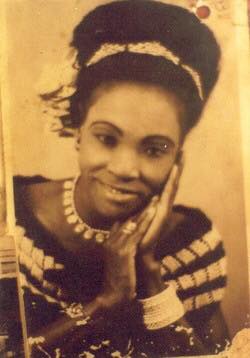
Chief Margaret Ekpo was a Nigerian women's rights activist and social mobilizer who was a pioneering female politician in the country's First Republic and a leading member of a class of traditional Nigerian women activists, many of whom rallied women beyond notions of ethnic solidarity. She played major roles as a grassroots and nationalist politician in the Eastern Nigerian city of Aba, in the era of a hierarchical and male-dominated movement towards independence.
The Nigerian Coal Corporation (NCC) is a Nigerian parastatal corporation responsible for mining and selling coal. It is based in Enugu.
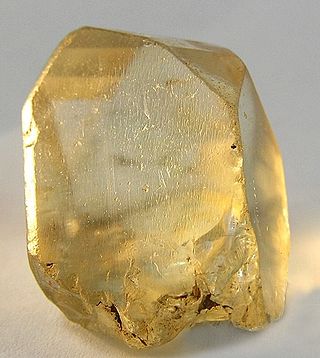
The mining of minerals in Nigeria accounts for only 0.3% of its gross domestic product, due to the influence of its vast oil resources. The domestic mining industry is underdeveloped, leading to Nigeria having to import minerals that it could produce domestically, such as salt or iron ore. The rights to ownership of mineral resources is held by the Federal Government of Nigeria, which grants titles to organizations to explore, mine, and sell mineral resources. Organized mining began in 1903, when the Mineral Survey of the Northern Protectorates was created by the British colonial government. A year later, the Mineral Survey of the Southern Protectorates was founded. By the 1940s, Nigeria was a major producer of tin, columbite, and coal. The discovery of oil in 1956 hurt the mineral extraction industries, as government and industry both began to focus on this new resource. The Nigerian Civil War in the late 1960s led many expatriate mining experts to leave the country. Mining regulation is handled by the Ministry of Solid Minerals Development, who are tasked with the responsibility of overseeing the management of all mineral resources in Nigeria. Mining law is codified in the Federal Minerals and Mining Act of 1999. Historically, Nigeria's mining industry was monopolized by state-owned public corporations. This led to a decline in productivity in almost all mineral industries. The Obasanjo administration began a process of selling off government-owned corporations to private investors in 1999. The Nigerian Mining Industry has picked up since the "Economic Diversification Agenda", from Oil & Gas, to Agriculture, Mining, etc., began in the country.
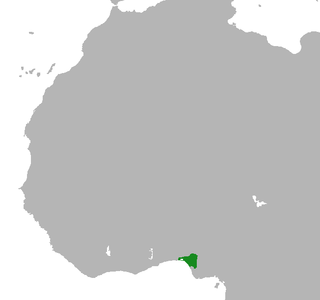
The Kingdom of Benin, also known as Great Benin or Benin Kingdom is a kingdom within what is now southern Nigeria. It has no historical relation to the modern republic of Benin, which was known as Dahomey from the 17th century until 1975. The Kingdom of Benin's capital was Edo, now known as Benin City in Edo State, Nigeria. The Benin Kingdom was "one of the oldest and most developed states in the coastal hinterland of West Africa". It grew out of the previous Edo Kingdom of Igodomigodo around the 11th century AD, and lasted until it was annexed by the British Empire in 1897.
Anambra Basin is one of the energy-rich inland sedimentary basins in Nigeria. It is a nearly triangular shaped embayment covering about 3000 km2 with a total sedimentary thickness of approximately 9 km. The Basin lying between 6°–7.8°N latitude and 6°40'–7°30'E longitude, is an area of agricultural and fisheries production. Fish species of genus Clarias are common in the basin especially in the dry season.
The Udi Hills, or Ugwueme and Udi hills, is located in the North Local Government Area of Enugu State, Nigeria. These hills rise hundreds of meters above sea level.
The 1949 Enugu Colliery Massacre, also known as The Iva Valley Shooting, took place on 18 November 1949, when a British Superintendent of Police, F.S. Philip, commanding a number of British and Nigerian Police Officers ordered the shooting of unarmed protesting coal mine workers of the Iva Valley Coal Mine who were on strike.














